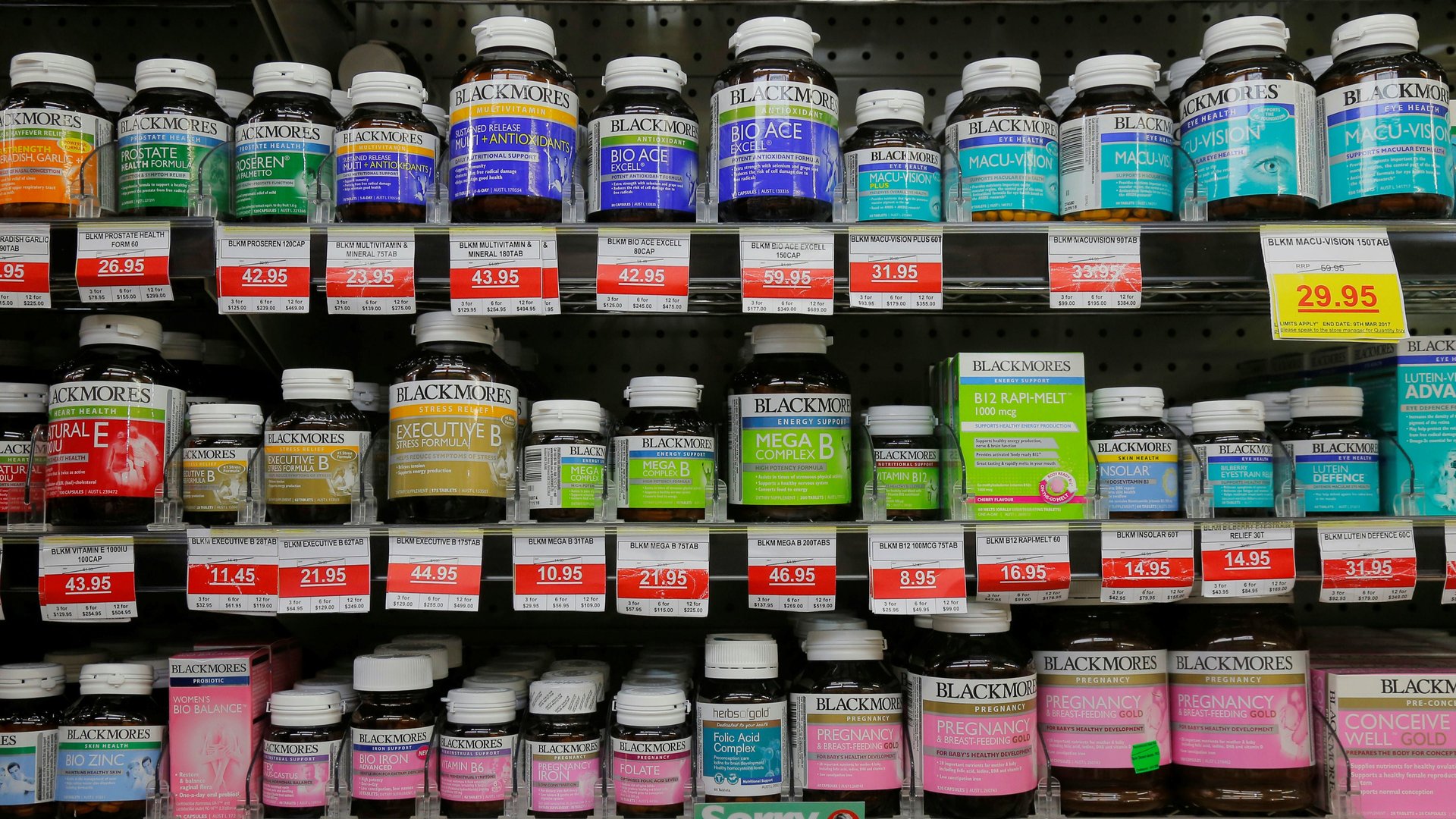A common ingredient in supplements can skew a test for heart and thyroid disease
Any vitamin or supplement you take, even if it’s sold over the counter, is still an extra dose of chemicals in your body. These compounds range from benign to slightly beneficial. But there are cases when they can inadvertently cause harm—like screwing up your blood work.


Any vitamin or supplement you take, even if it’s sold over the counter, is still an extra dose of chemicals in your body. These compounds range from benign to slightly beneficial. But there are cases when they can inadvertently cause harm—like screwing up your blood work.
On Nov. 28, the US Food and Drug Administration issued a warning for people taking supplements that include biotin, a vitamin that is often used to promote skin health as well as hair and nail growth, and also shows up in multi- and prenatal pills. Biotin, also known as vitamin B-7, has been found to interact with other chemicals in the blood and make them appear artificially high or low in blood tests, particularly measures of heart and thyroid health. This may lead healthcare providers to overlook conditions for which patients are at risk.
In one case, a patient taking high levels of biotin was found to have falsely low levels of a chemical called troponin, a protein the heart releases when in distress, like in the case of a heart attack. This contributed to the doctors missing his heart disease. The patient later ended up dying—although it is unclear from the FDA’s statement if this was directly a result of the misdiagnosis.
US-manufactured biotin supplements are regulated by the FDA, and are taken by consumers for their hair, skin, and nails. While biotin has been shown in some studies to improve the shininess of hair and reduce shedding after three months, the evidence is limited because the sample sizes have been so small. The assumption is that it helps the body make keratin, a protein that toughens our outer layers of skin and coverings like hair and nails.
Medically, most of us don’t need to take extra biotin. It’s exceedingly rare to actually have a deficiency of the vitamin because we seem to only need trace amounts of it. There are no official recommendations from the FDA for how much we need daily. Anywhere between 30 and 100 micrograms a day is sufficient for most adults, according to the Mayo Clinic, an attainable amount by eating foods like eggs, nuts, bananas, mushrooms, and cauliflower. People who need to take extra biotin usually have a genetic disorder, or have had their stomachs or small intestines removed for medical reasons (some bacteria in the gut microbiome can make the vitamin).
Some supplements on the market contain 650 times the 100 micrograms we should be getting. This isn’t necessarily dangerous—vitamin B7 dissolves in water and excess biotin is simply excreted through urine. But it does mean that it’s important to tell your healthcare provider if you are taking any kind of over-the-counter vitamin, given the FDA’s warning. You could even bring your medication or supplement bottles to a doctors visit for them to check out. The fact that high levels of biotin can alter some test results could change how the doctors interpret your blood work, and, in turn, the medical action they advise.